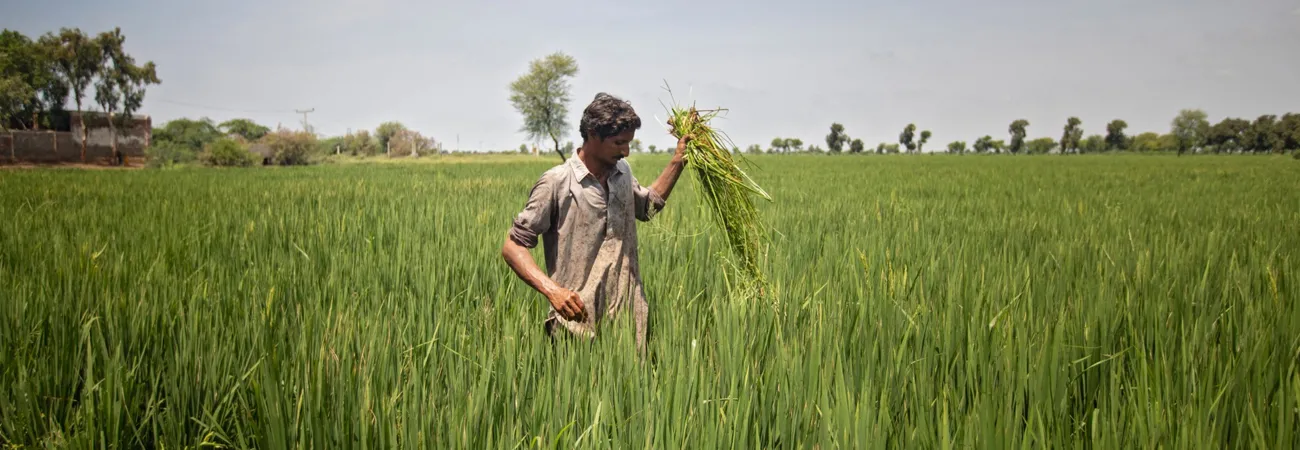i ECONOMY
Sindh Water and Agriculture Transformation (SWAT) project aims to boost rural economy of the province by increasing productivity of the agriculture sector. The project is designed to transform Sindh's water and agricultural sectors by increasing agricultural water productivity, implementing integrated water resources management, promoting policy reforms, enhancing rural economic development and addressing environmental challenges, according to official documents seen by WealthPK. This task will be done by adopting modern practices, optimising resource use, and empowering local communities. The project also aims to create a sustainable and prosperous agricultural landscape in the region, the documents show. “The project is in accordance with the strategic directions of attaining food security under Pakistan Vision 2025,” Rasheed Memon, Director of Sindh Irrigation Department, told WealthPK. He said Pakistan was facing food and water insecurity despite being an agriculture-based economy.
He said Pakistan’s current water availability was less than other countries, making it a “water stressed” and directing it towards a “water scarce” country. He said the project was in line with the National Water Policy 2018, the objective of which is to identify the emerging water crisis and provide an overall policy framework and guidelines for comprehensive policy action. Rasheed said that the project emphasised value chain development by investing in agricultural technology and promoting supply and demand sides of the agricultural sector. “This approach enhances productivity and competitiveness, benefiting farmers and other stakeholders along the agricultural value chain. It seeks to modernise century-old irrigation practices, enabling a more flexible and adaptive approach to meeting the water needs of farmers. This modernisation process ensures equitable water distribution and efficient water usage.”
Besides, the irrigation department official said the project aimed to shift from traditional agricultural subsidies to smart subsidies that incentivise the cultivation of high-value, water-efficient crops. “This approach encourages sustainable resource use and improves agricultural productivity.” “The project facilitates a community-driven development process at the grassroots level, ensuring that agricultural and irrigation investments are synchronised to directly benefit farmers. This approach promotes local ownership, participation, and tangible on-the-ground results,” he added. Rasheed said the project seeks to establish a robust institutional framework for integrated water resources management. “By integrating water management practices, the project aims to ensure efficient and sustainable use of water resources for agricultural development and economic growth.”
He said the project builds upon the successes and lessons learned from previous World Bank-financed projects in Sindh province, such as Water Sector Improvement Project, Sindh Agriculture Growth Project, and Sindh Irrigated Agriculture Productivity Enhancement Project. “It aims to synergise water and agricultural investments for maximum rural development impact.” “Through increased agricultural productivity, policy reforms and efficient resource utilisation, the project aims to stimulate Sindh's rural economy. This includes reducing rural poverty and malnutrition by promoting higher-value agricultural activities and improving livelihoods.” “It aims to mitigate water-related environmental degradation by promoting sustainable water management practices.”
Credit: Independent News Pakistan









